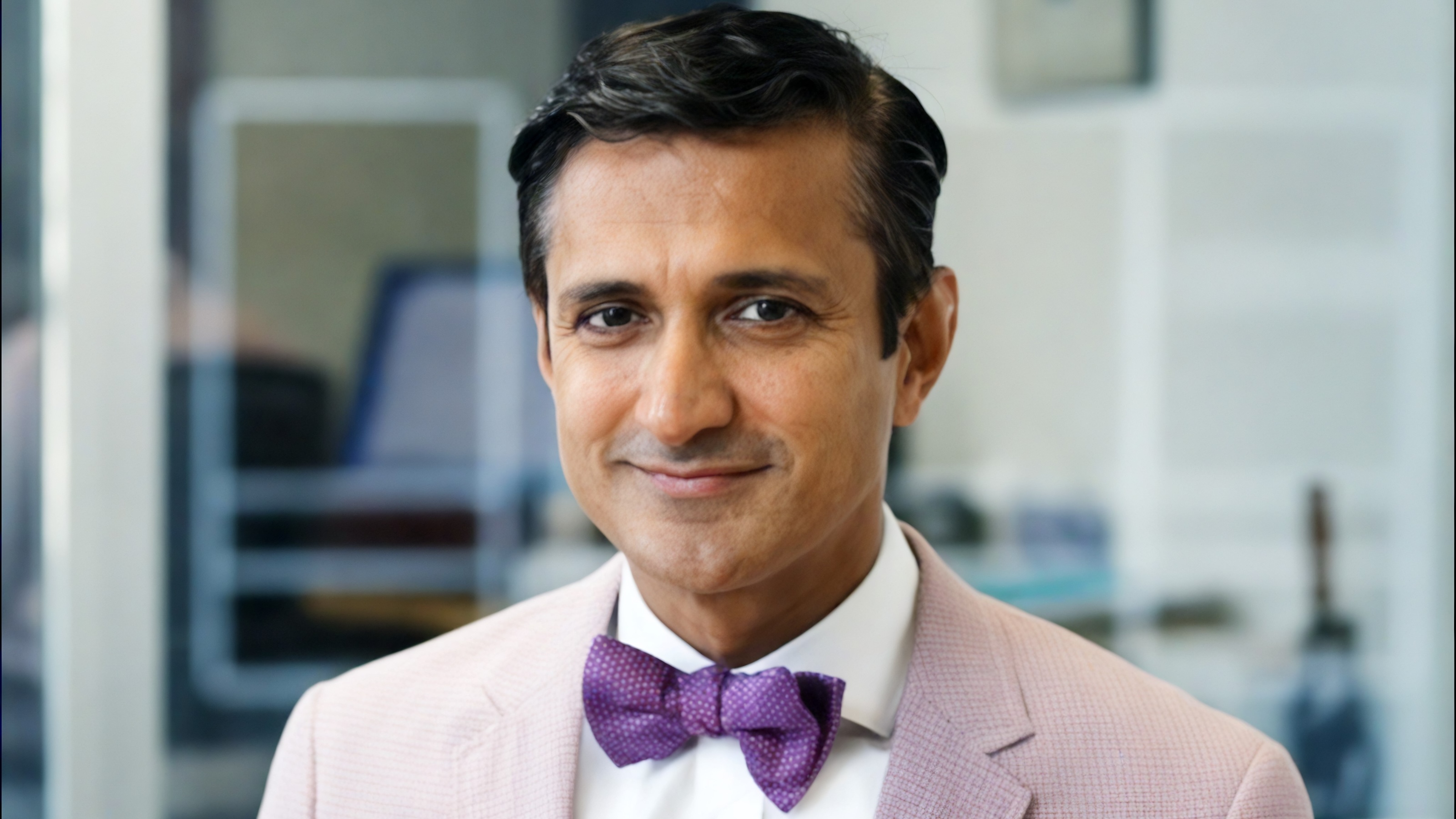A conversation with the technology forecaster and essayist.
Big Think Interview With Paul Saffo.
Question: How can businesses best use your counsel?
Paul Saffo: I’m a technology forecaster, which means I spend my time exploring the intersection between technological advancements and entrepreneurship. Technology advances our conversation between inventors and society. Inventors propose and society disposes and it’s that process that has delivered all the surprises, some welcome some unwelcome, in our lives over the last couple of decades.
What I really am is a historian of technology who spends most of his time looking at technologies that don’t exist yet. Looking at the historic pattern of technology innovation and adaption can tell us volumes about how things will evolve in the future, and in fact you can pull out some very simple rules.
Perhaps the simplest is when it comes to advance technologies. Never mistake a clearer view for a short distance just because the technology looks like it’s about to arrive in the very near future. Chances are there will be some surprises and in the long run even the most expected of futures tends to arrive late and in completely unexpected ways.
Question: What should companies be doing to preserve cash in this economic environment?
Paul Saffo: The most important thing that a company can do in the midst of this economic turmoil is to not lose sight of the long-term perspective. Don’t confuse the short-term crises with the long-term trends. Amidst all of these short-term change are some fundamental structural transformations happening in the economy, and the best way to stay in business is to not allow the short-term distractions to cause you to ignore what is happening in the long term.
Question: How do companies see the long term amidst short-term distractions?
Paul Saffo: There’s a lot of focus on preserving cash and hunkering down at the moment. Sequoia Capital famously sent out a PowerPoint in the fall of 2008 to its company. It basically said, “Look, preserve your bodily fluids. Cash is king. Don’t look to us for help if you get into trouble.”
And of course that’s the main theme. But also I think it’s a very good idea to have a strong contrarian instinct. It’s not just conserving cash at this moment but this maybe the moment in which it is especially valuable to strategically spend some of the cash you’re hoarding in order to set up for what the next order is to come along. So, saving cash is something that is answered in the specific, not in the general, but do not focus exclusively on saving cash, this maybe the right time to spend cash wisely.
Question: What are the effective ways companies can reduce operational costs?
Paul Saffo: We have tended to use new technologies in companies in two ways: either to lower costs, or to create more effective ways of approaching the market. Using technology merely to lower operational costs amounts to standing on a whale fishing for minnows. It just allows you to do the old thing more efficiently, where in this moment of deep transformation, it is much more likely that you should be doing something entirely new in an entirely different way. So if you focus on technology solely as a way to squeeze expense out of your existing business, you’re probably doing it at the cost of ignoring what your future business will be.
So my advice is don’t use technology primarily to lower costs. Use technology to create new, effective ways of touching the market and creating new businesses and if you do that right, the cost savings will come.
Question: How can companies avoid turning inward in a down market?
Paul Saffo: I really think that every good executive should have a really strong contrarian instinct. When everybody else is in a down market is focusing on what they’re doing wrong, instead focus on what you should be doing differently, it may be that what you did in the past was perfectly right. It is possible to do all the right things in business and still have a business crisis because of what’s happening in the external environment. And if you start focusing on mistakes only, you’re going to miss opportunities. But above all, executives in this moment of deep uncertainty will be most effective if they listen to the contrarian in them.
Topic: Creating Value for the Customer
Paul Saffo: The important thing about customer service in an age of the web and the internet is above all, be honest and make expectations realistic. Don’t promise what you can’t deliver. Don’t let your enthusiasm for your company claim that service is better than it is.
Take a company like Amazon. You cannot reach a human being at Amazon. Well you can but it’s very, very hard. And yet everybody is very happy with Amazon’s customer service because Amazon makes it really clear. If you have a problem, send us an email. They don’t promise that you’ll be able to reach a human operator. They do exactly what they say, and that is talk to us by email.
I think the most important thing that a company can do, not just in the customer space but the employee space, is to be completely open and completely honest. Don’t pretend that you’re doing something that you can not do.
There’s an old saying in Silicon Valley, “It’s not a bug. It’s a feature.” And so a lot of companies say, “Gosh, you know, we can’t talk to our customers. We can’t interact with them properly.” That’s really a problem. Well, that may be a feature. Your customers may in fact not want to interact with you, and if you’re just upfront with customers that you can’t interact with them, they will handle their own customer service.
Topic: Advice on Letting Employees Go
Paul Saffo: You know, the best way to let people go is to let them know when they’re hired that it’s an uncertain environment and that their job is always at risk and even if you let them go, it’s not that you don’t love them.
We do this quite well here in Silicon Valley. The economic bargain when you join a startup company is you know it is a risky proposition and the company may not exist and if it doesn’t, there’s no expectation of lifetime employment.
So I think companies over the last 10 years have done a very bad job of explaining to their employees what the intrinsic risks are. All I know is, if you wait until you let the employee go to deal with the issue of how do you communicate to the employee about being let go, it’s too late to do anything.
Question: How do you maintain the morale of the employees that remain?
Paul Saffo: Clarity in this period of uncertainty is absolutely essential to employee morale and the clarity goes not just to how long their jobs would last, but to the nature of the job. Look at the deep transformation in what a job is, and how it’s changed over the last couple of decades.
Topic: Forecasting the Future Economic Landscape
Paul Saffo: There is a profound change in the economy today. And to make sense of what’s happening now you have to go back a hundred years. A hundred years ago we had an emerging industrial economy, the central actor was the worker and the symbol of that economy was the time clock because companies then, the big industrial concerns, were utterly preoccupied with making enough stuff cheaply enough to satisfy the demands of an emergent working class and middle class and we spent 50 years perfecting the industrial economy.
And after World War II, when companies returned back to making things for consumers, they discovered to their horror they had gotten so good at making stuff that they were now making more stuff than people wanted.
And that was the end of the industrial economy and the birth of a new economy, the consumer economy, in which power shifted from the heads of manufacturing, those who produce, to the heads of sales and marketing, those who created desire and demand for products. And power in the market place shifted from worker, the person who produced, to the consumer, the person who purchased. And the symbol of that economy was the credit card, that vehicle that allowed people to buy things even if they didn’t have any money.
Well, that economy ended last fall with Black Sunday and the beginning of another financial collapse because we discovered we had so inflamed desires over the last 50 years that now people wanted more things than they could possibly ever use or possibly ever afford.
This new economy that’s just emerged has a new central economic actor. It’s not the worker, the person who produces, nor the person who consumes, the purchaser. It’s a new actor that does both things at the same time, call them a creator. They both create and consume in the same single act, and we’re just beginning to see the shape of this new economy and it changes not just the economy itself, it’s going to change the whole nature of the work relationship.
I’m not sure the notion of employee or job is going to survive the transition over the next couple of decades. The very notion of a fulltime job will seem as quaint in 20 years as the notion of someone getting a gold watch at their retirement in the 1950s.
Conducted on: June 18, 2009.





